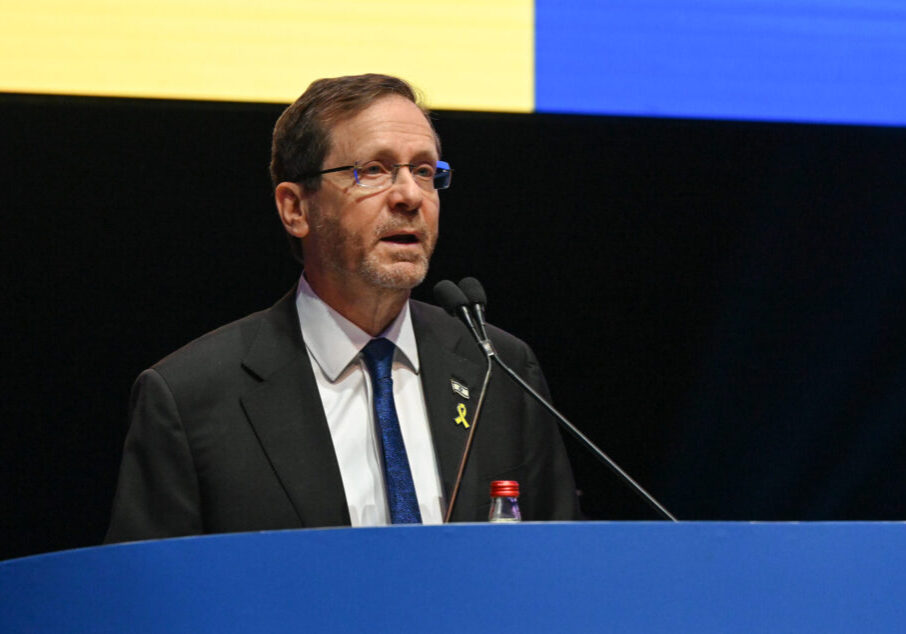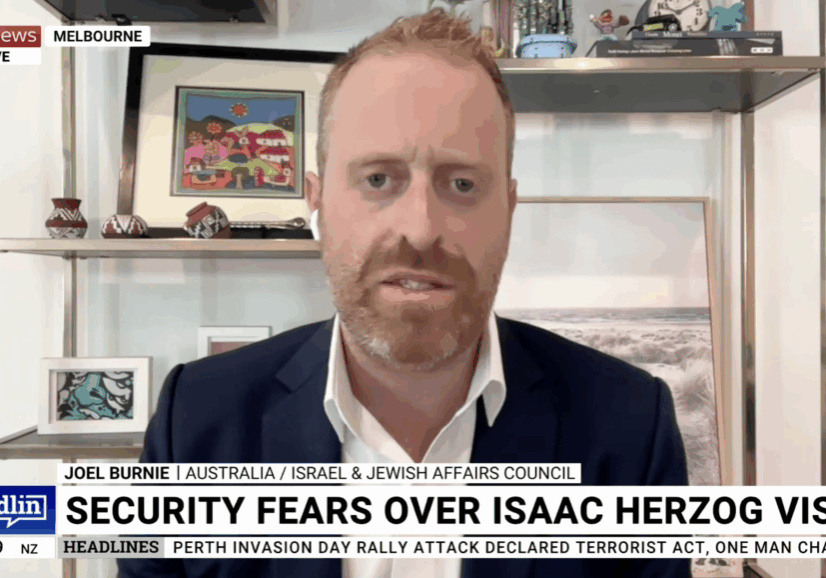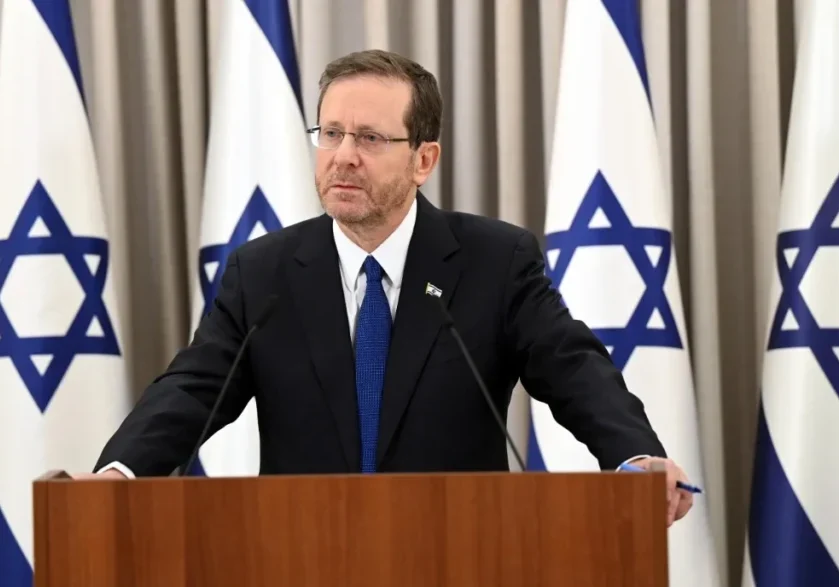Australia/Israel Review
Scribblings: Happy, but no accident
Apr 28, 2025 | Tzvi Fleischer

Even before October 7, many people found it a bit counter-intuitive, an anomaly even, that Israel – with its frequent conflict and terrorism, vituperative politics and unusually high cost-of-living – was regularly situated near the top of the annual World Happiness Index published by the UN’s Sustainable Development Solutions Network. But what is even more shocking is that the trauma of October 7 – and the constant warfare, extreme daily tensions and economic and social disruptions since then – failed to knock Israel out of the top 10. In the 2025 World Happiness Index (based on data from 2024), Israel placed eighth. That’s above successful, prosperous countries with minimal violence and disorder, such as Australia and New Zealand which came in at 11 and 12, respectively.
A lot has been written about what it is that makes Israelis so happy in defiance of what seems to be common sense about the sources of happiness. But in my view, while the answer is certainly not straightforward, the essence of Israeli happiness can mainly be summed up in two words – “community” and “meaning”. Israeli society provides most of its citizens with close bonds of family and friendship they can count on, plus a life that feels suffused with meaning in a way that is lacking among many in other Western nations.
Below are quotes from two recent articles on what might be termed the “Israeli Happiness Anomaly”, illustrating these two points about Israeli society well.
Rob Eshman, a columnist with the New York Jewish Forward, wrote the following (March 20):
Dan Ariely, an Israeli-born economist…told me it is Israel’s very hardship that accounts for its happiness.
In most countries people lead a somewhat comfortable life, and they have no experience where the people around them step up to really help them,” Ariely wrote in an email. “In Israel, life is for sure less comfortable, but it is also very clear that people can count on their friends and family to step up and help them in a time of need.”
Meanwhile, the former Soviet dissident turned Israeli intellectual Natan Sharansky and the historian Gil Troy wrote this in Tablet magazine (April 10):
On April 12, 96 percent of Israeli Jews will participate in the oldest ongoing ritual in the Western world: the Passover Seder, celebrating the exodus from Egypt three millennia ago. Few democracies, if any, match these participation rates.
…too many young Americans appear to have lost pride in their nation and its story…
In contrast, Israelis feel they are part of Israel’s story and the Jewish story, that of a proud people trying to do better in the world while also bettering it. After repeatedly overcoming oppression, they’ve returned to their homeland to live freely – and happily. Israeli schools repeatedly assign students shorashim, “roots,” projects. These family-tree explorations, even in high school, usually culminate in evenings celebrating parents’ or grandparents’ differing ethnic origins, cuisines, and Zionist journeys, propelling everyone forward together.
Sharansky and Troy suggest that the “Israeli Happiness Anomaly” may actually have a lot to teach other Western societies beset with nihilism, cynicism and a crisis of confidence – with growing numbers of people feeling lost, lonely, depressed, forgotten or direction-less:
Israel’s historical optimism proves that identity is built through shared stories and values, not political agendas and competing grievances. When nurtured thoughtfully, group identity doesn’t compromise our freedom; it enhances our journey, filling our free, prosperous lives with the sounds of others, inspired by the ideas of our ancestors.
The West needs good tribalism: A healthy commitment to community, connectedness, and history anchors us. It motivates us to defend ourselves when necessary, while inspiring us always to build a better world. That’s the essence of most Israelis’ Zionism.
It’s hard to disagree. The Israeli “happiness anomaly” may not actually be an anomaly at all. It’s actually a positive example, suggesting ways to counter some of the destructive trends which have beset Western societies even as they have grown to achieve ever higher levels of material abundance over recent decades.
A matter of faith
Readers familiar with the Hamas Covenant may know that among its many other extreme and frightening elements – including huge amounts of classical antisemitism – there is one provision that absolutely guarantees Hamas will never agree to Israeli-Palestinian coexistence. The provision is Article 11:
The land of Palestine is an Islamic Waqf [sacred Islamic charitable endowment] consecrated for future Moslem generations until Judgment Day. No one can renounce it or any part, or abandon it or any part of it.
This provision asserts that all of Palestinian is a holy possession of all Muslims everywhere, so agreeing to allow Jewish sovereignty on even one inch of it is effectively heresy, and thus completely forbidden to all practising Muslims. This makes coexistence both illegal and unthinkable. From this provision flow the other key parts of the Covenant, such as the rejection of all negotiations, the demand for eternal jihad until Israel is destroyed and claims such as the “Liberation of Palestine is an individual duty for every Muslim” and “Leaving the circle of struggle against Zionism is high treason.”
But of course, everyone knows Hamas are terrorists, extreme Islamists and rejectionists.
Yet the supposedly moderate Palestinian Authority (PA) broadcasts the same message about all of Palestine being an Islamic “Waqf” on which no compromise is conceivable on its official, carefully controlled TV station.
Here is what a PA religious official, Islamic law (Shari’ah) Judge Nasser Al-Qirem, told PA-TV viewers on Feb. 14:
The Shari’ah legal law of this land, for anyone who doesn’t know, is that it is a waqf land (an inalienable religious endowment)… from its [Mediterranean] Sea to its [Jordan] River… The laws of this waqf determine that its status cannot be changed, not by sale and not by purchase, not by collateral and not by exchange… not by addition and not by subtraction… It is [Waqf] forever and ever, and for all eternity, until Allah inherits the earth and those on it.
If there is any substantive difference between this claim and what Hamas says in its Covenant, I can’t see it.
Is it any wonder that Palestinians in the West Bank cheered on October 7, with much increased support for Hamas according to polls following the attack, when the PA’s official outlets are teaching Palestinians that Hamas’ claims about a religious obligation to destroy Israel at any cost are correct?
Tags: Hamas, Israel, Palestinian Authority, Palestinians
RELATED ARTICLES

Herzog visit comes at a profoundly significant moment for the Jewish community: Arsen Ostrovsky on BBC radio





